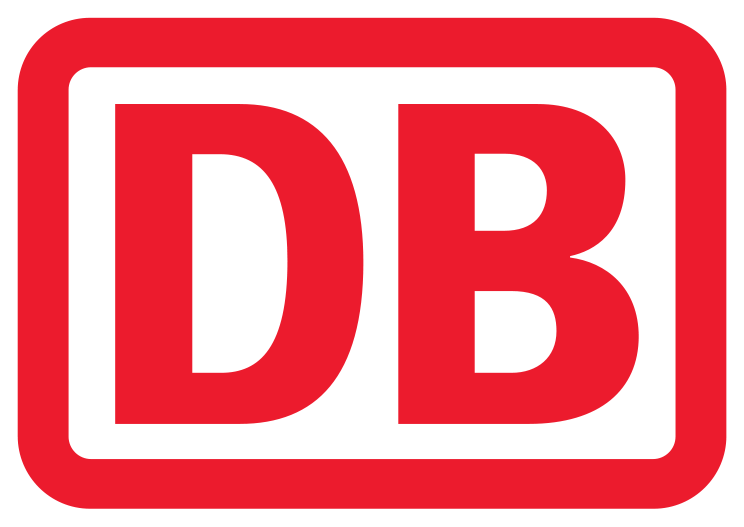Further training Certified logistics manager
Your path as a specialist in logistics

Sustainability
- CO2 footprint.
- E-mobility.
- Hydrogen.
- Energy supply.
- Network optimization.
- Sustainability reporting.
Current framework conditions in logistics
Logistics trends
Urban logistics
- Modern logistics strategies.
- Distribution strategies.
- Global markets.
- Supply chains.
- Risk management in logistics.
Completion of the e-learning courses"Employment law for managers" and"Conducting successful discussions".
Leadership skills for logistics managers
- The role of logistics manager as a leader.
- Success through situational leadership: recognizing and complementing your own leadership style.
- Important management techniques for practical use: agreeing rules, conducting employee appraisals, consistent action.
- Managing conflicts professionally: conflict development, conflict styles, dealing with conflicts.
- Training based on seminar participants' own practical cases: e.g. conducting conflict, motivation and target agreement discussions.
Transportation law
- Types of transportation contracts.
- Liability of the transport service provider towards the client.
- Enforce claims for damages correctly.
- Importance of transport insurance/warehouse insurance for the owner of the goods.
The written thesis relates to all modules and is in the form of a case study.
Contents
Module 1: Sustainability and trends in logistics
Sustainability
- CO2 footprint.
- E-mobility.
- Hydrogen.
- Energy supply.
- Network optimization.
- Sustainability reporting.
Current framework conditions in logistics
Logistics trends
Urban logistics
Module 2: Logistics strategy
- Modern logistics strategies.
- Distribution strategies.
- Global markets.
- Supply chains.
- Risk management in logistics.
Module 3: Transfer phase and completion of the e-learning courses: "Employment law for managers" and "Conducting successful discussions"
Module 4: Transport law + management
Leadership skills for logistics managers
- The role of logistics manager as a leader.
- Success through situational leadership: recognizing and complementing your own leadership style.
- Important management techniques for practical use: agreeing rules, conducting employee appraisals, consistent action.
- Managing conflicts professionally: conflict development, conflict styles, dealing with conflicts.
- Training based on the seminar participants' own practical cases: e.g. conducting conflict, motivation and target agreement discussions.
Transportation law
- Types of transportation contracts.
- Liability of the transport service provider towards the client.
- Enforce claims for damages correctly.
- Importance of transport insurance/warehouse insurance for the owner of the goods.
Module 5: Final examination
Learning environment
In your online learning environment, you will find useful information, downloads and extra services for this training course once you have registered.
Methods
Trainer input, practical/case examples, case studies, individual/group work, role plays, practical negotiation simulation, video analysis, use of film sequences, discussion and exchange of experience, e-learning.
Recommended for
(Future) logistics managers, logistics managers with initial management experience, logistics specialists with initial management experience.
Final examination
After completing modules 1 to 4, a written thesis in the form of a case study must be submitted. This should be submitted no later than four weeks after the end of the fourth module.
Further recommendations for "Certified logistics manager"
Sustainability
- CO2 footprint.
- E-mobility.
- Hydrogen.
- Energy supply.
- Network optimization.
- Sustainability reporting.
- Current framework conditions in logistics.
Logistics trends
Urban logistics
- Modern logistics strategies.
- Distribution strategies.
- Global markets.
- Supply chains.
- Risk management in logistics.
Completion of the e-learning courses "Employment law for managers" and "Conducting successful discussions".
Leadership skills for logistics managers
- The role of logistics manager as a leader.
- Success through situational leadership: recognizing and complementing your own leadership style.
- Important management techniques for practical use: agreeing rules, conducting employee appraisals, consistent action.
- Managing conflicts professionally: conflict development, conflict styles, dealing with conflicts.
- Training based on seminar participants' own practical cases: e.g. conducting conflict, motivation and target agreement discussions.
Transportation law
- Types of transportation contracts.
- Liability of the transport service provider towards the client.
- Enforce claims for damages correctly.
- Importance of transport insurance/warehouse insurance for the owner of the goods.
The written thesis relates to all modules and is in the form of a case study.
Contents
Module 1: Sustainability and trends in logistics
Sustainability
- CO2 footprint.
- E-mobility.
- Hydrogen.
- Energy supply.
- Network optimization.
- Sustainability reporting.
Current framework conditions in logistics
Logistics trends
Urban logistics
Module 2: Logistics strategy
- Modern logistics strategies.
- Distribution strategies.
- Global markets.
- Supply chains.
- Risk management in logistics.
Module 3: Transfer phase and completion of the e-learning courses: "Employment law for managers" and "Conducting successful discussions"
Module 4: Transport law + management
Leadership skills for logistics managers
- The role of logistics manager as a leader.
- Success through situational leadership: recognizing and complementing your own leadership style.
- Important management techniques for practical use: agreeing rules, conducting employee appraisals, consistent action.
- Managing conflicts professionally: conflict development, conflict styles, dealing with conflicts.
- Training based on the seminar participants' own practical cases: e.g. conducting conflict, motivation and target agreement discussions.
Transportation law
- Types of transportation contracts.
- Liability of the transport service provider towards the client.
- Enforce claims for damages correctly.
- Importance of transport insurance/warehouse insurance for the owner of the goods.
Module 5: Final examination
Learning environment
In your online learning environment, you will find useful information, downloads and extra services for this training course once you have registered.
Methods
Trainer input, practical/case examples, case studies, individual/group work, role plays, practical negotiation simulation, video analysis, use of film sequences, discussion and exchange of experience, e-learning.
Recommended for
(Future) logistics managers, logistics managers with initial management experience, logistics specialists with initial management experience.
Final examination
After completing modules 1 to 4, a written thesis in the form of a case study must be submitted. This should be submitted no later than four weeks after the end of the fourth module.
Further recommendations for "Certified logistics manager"
35379
35245
Start dates and details








